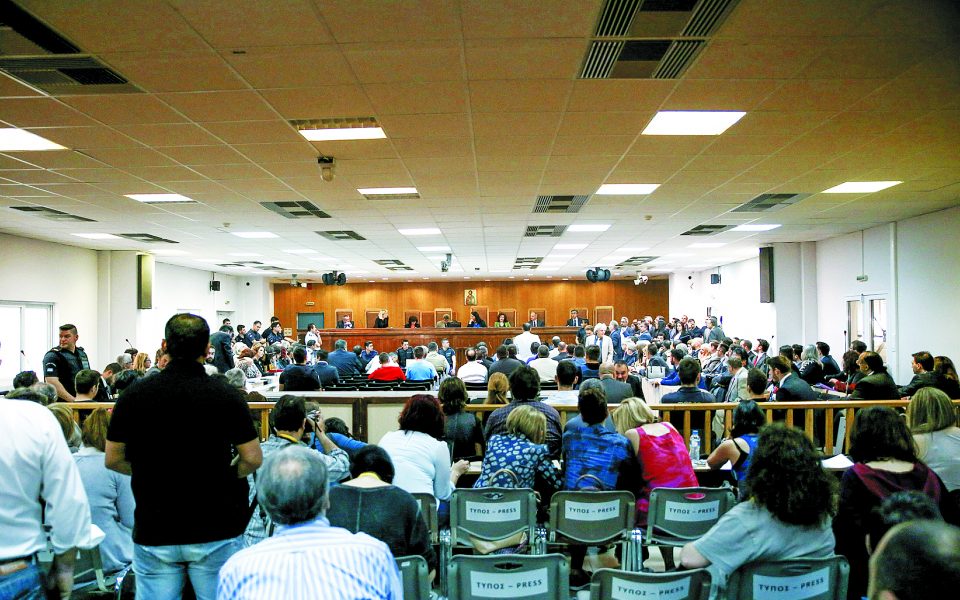Justice in Greece is served late, if ever
Courts plagued by postponements and other delays, but several efforts at reform have failed

In a country notorious for the malfunctioning of many of its major institutions, Greece’s justice system stands out.
Greek justice is notorious for its delays; despite having voted 43 pieces of legislation since 2000 with the explicit intent of speeding up trials, Greek governments have also undermined their own logic by abolishing any limits to which each party at a trial is entitled to ask for a postponement.
Add to that the cramped conditions in most courtrooms and the short hours courts are in session and you have a situation approaching chaos.
Courts are in session from 9 a.m. to 12 noon and from 1 to 3 p.m. All recent high court presidents and prosecutors have raised the issue of extending the hours, usually asking for an additional hour or two. But no one has dared to touch the subject.
Justice ministers, including the present one, usually start by promising action and then, in the face of opposition, mostly from lawyers and court clerks, but also some judges, backtrack, fearing an imagined “political cost.” At least the present justice minister, Kostas Tsiaras, managed to shorten the summer vacation by 15 days this year, invoking an additional case backlog created by the pandemic. Thus, courts, which normally shut down from July 1 to September 15, this year reopened on September 1.
It is not only in their long summer vacations that courts resemble schools, as they also shut down for Christmas and Easter.
Lawyers, especially those who take on multiple cases, are also to blame for the continual trial postponements, often telling presiding judges that an important case awaits them in another courtroom to justify their demand for postponement. The other case is always the most important one that must be dealt with promptly.
Oftentimes, they make the same argument in all cases they are involved in. Although, on average, court cases are postponed three times, they are often delayed seven or eight times, with new audiences set quite far into the future. But judges often do their part.
The Council of State, the country’s highest administrative court, is a notorious offender, once, back in the last century, postponing hearings on a case 48 times. But the practice has been alive and well also since 2000: the Council of State has postponed hearings on 5,000 cases, one of them 24 times.





